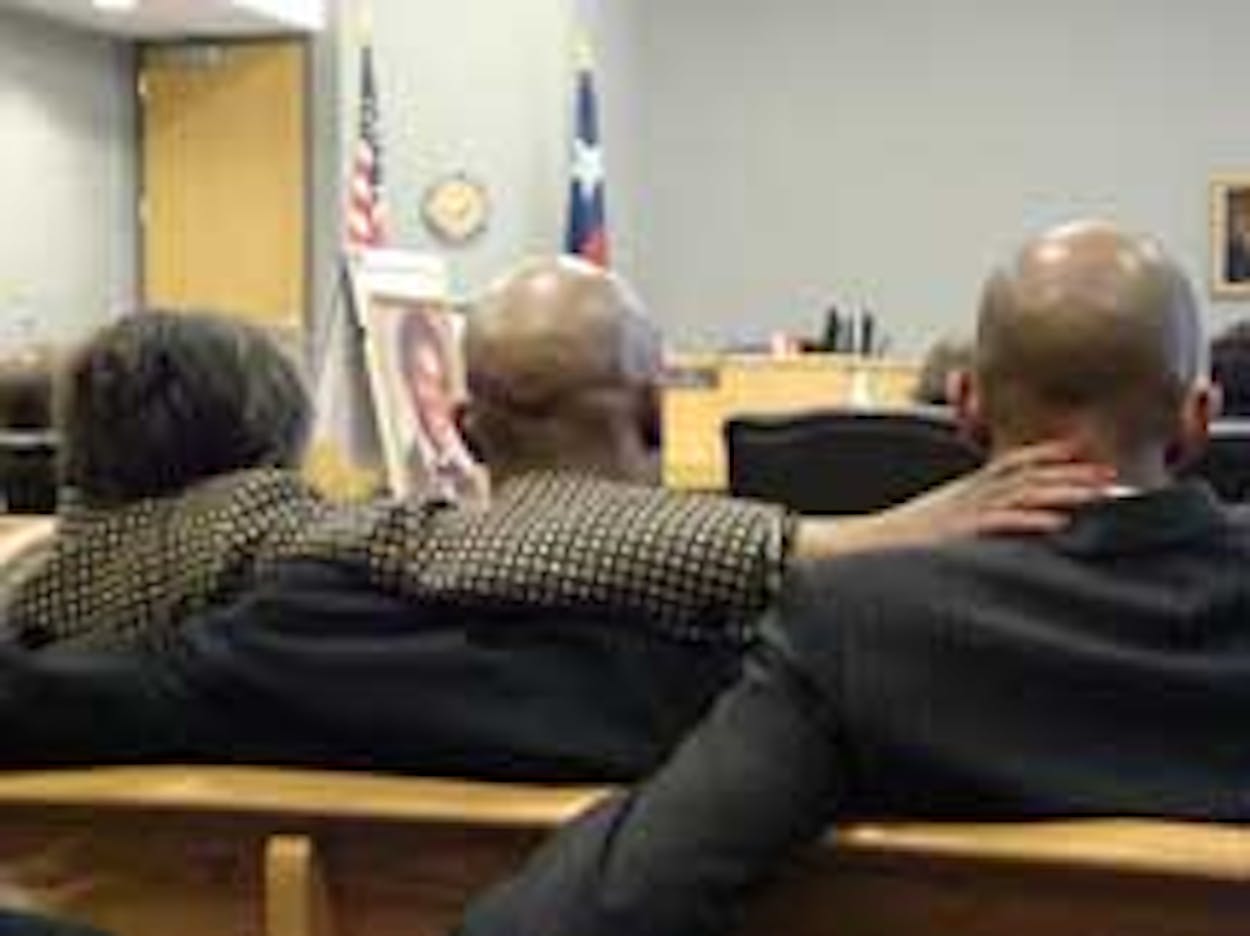Falsely accused of aggravated sexual assault in 1985, Timothy Cole was wrongly convicted and unjustly imprisoned—a first-time offender sentenced to twenty-five years. But in reality, he was kept behind bars because of his moral principles. In a letter he wrote to his mother, Cole said, “I would rather spend all twenty-five years living in prison as a convicted rapist, then to come out and live in the free world as a registered sex offender, all for a crime I did not commit.”
But Cole didn’t live to see his name cleared. He died in prison in 1999 of complications from asthma.
In February 2008, after reviewing the evidence and hearing testimony, Judge Charles Baird of the 299th District Court in Austin found Cole innocent. That day, almost twenty-four years later, proved to be the day that his family was able to take Tim’s name home the way it left—free and clear.
They were known as the Texas Tech Rapes. Beginning in 1984, the attacks occurred on or near the campus of Texas Tech University in Lubbock. Four women had been raped that year, including Michele Mallin in March of 1985.
“I don’t remember being afraid because I didn’t think it was going to happen to me,” Mallin said during the two-day trial.
But it did happen to her, and the rape was only the first injustice in this ongoing saga. With numerous other rapes and no suspects, the Lubbock police department put an undercover female police officer in the campus area. And Cole fell into the trap. He drove up to the undercover officer and started a conversation. He told her his name and where he was from. Although nothing from that conversation resembled the rapist’s profile, the police ran Cole’s license plates and discovered that he had recently reported being robbed.
After claiming that they were investigating the robbery, detectives took Cole’s photo, and placed the color Polaroid in a collage of five black and white mug shots. Mallin picked him out and said she thought it was Cole, although she had only seen her attacker for a few minutes in the dark. Given the unreliability of eyewitness testimony, that type of photo lineup can lead the victim.
(In 2007, the man who actually committed the rape—Jerry Wayne Johnson—wrote a letter to Cole’s mother, Ruby Session, confessing to the crime.)
At the time, Cole’s brother Reginald Kennard said he didn’t think to ask for a lawyer because he trusted the police and Cole was innocent. “[The police] said it might all be a misunderstanding, so just do the lineup and you can go home. Next thing you know, the detectives were acting like they won the Super Bowl after Michelle went in,” Kennard said.
Giving any kind of feedback to a witness is another way that testimony can be manipulated. In this case, officers were found to be giving positive feedback to Mallin after she picked Cole out of the lineup. At any trial, witness testimony is key to the jury’s conviction.
At the exoneration, Mallin said that she really felt she had picked the right person and “gotten a rapist off the street.” But she didn’t pick the right person. She picked Cole, who never admitted to the rape, despite the fact that a confession would have gotten him out on parole.
“That was not my son’s character, he refused and I’m proud of him,” said Ruby Session, Tim’s mother. She cried as she remembered the last night she was with Cole after his conviction. “We got on the floor and cried as I rocked my baby in my arms and he asked me why they were trying to convict him of this crime. My son was a 26-year-old man, lying in his mother’s arms, and that’s all I could do.”
Judge Baird addressed Cole’s family in his closing remarks. “This went from aggravated sexual assault to robbery, and the judicial system robbed the Cole family of Tim’s love, and I’m sorry for that.” He concluded that Cole had suffered the “greatest miscarriage of the justice system imaginable.”
“This system was designed by wise men and women to serve justice, and you’ve shown that this system is broken. We are fools if we don’t fix it. It is the duty of prosecutors not to convict but to seek justice, and somewhere out in Lubbock, that duty was lost in the tunnel vision of trying to convict Timothy Cole.”







